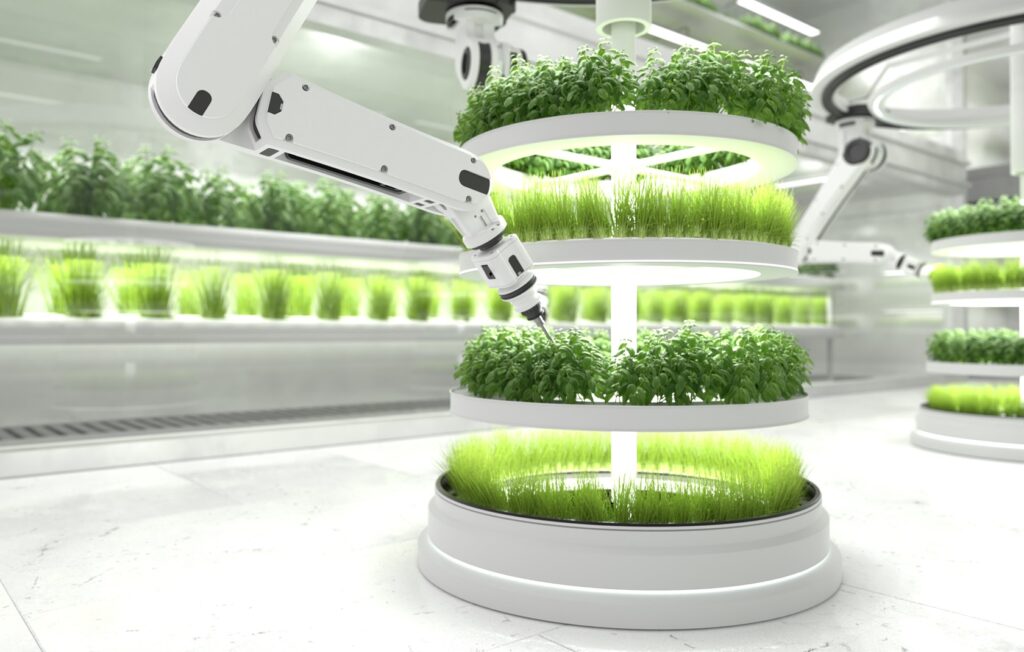Plant Patenting
Table of Contents
TogglePlant patenting is a keystone of innovation in the rapidly evolving field of agriculture, propelling improvements in crop types and environmentally friendly farming methods. As technology progresses, new advancements in plant patenting are transforming the landscape of agricultural technology.
At Affordable Patent Agency, we provide comprehensive guidance and insight into the latest developments and innovations shaping plant patenting practices. With a focus on affordability and accessibility, we empower inventors to stay informed and adapt to emerging trends, ensuring their plant inventions receive the protection and recognition they deserve. Trust Affordable Patent Agency to be your partner in deciphering the complexities of plant patenting and seizing opportunities in this dynamic field.
Looking for a Skilled Patent Agent?
Call Affordable Patent Agency, LLC
The Rise of Genomic Editing Techniques in
Plant Patenting
Advancements in genomic editing techniques have revolutionized the field of plant patenting, enabling breeders to develop novel crop varieties with precision and efficiency. Here are a few significant trends reshaping the environment:
CRISPR-Cas9 Technology
- With CRISPR-Cas9 technology, plant breeders may now make precise genetic alterations with previously unheard-of accuracy thanks to this powerful tool for targeted genome editing.
- This ground-breaking method may alter particular genes linked to desired characteristics like drought tolerance, disease resistance, and nutritional content, creating robust and high-yielding crop types.
Gene Editing for Crop Improvement
- Gene editing techniques allow breeders to fine-tune crop characteristics and address agricultural challenges more effectively.
- By targeting genes responsible for traits such as yield, quality, and environmental resilience, breeders can accelerate the development of crop varieties tailored to meet evolving consumer preferences and sustainability goals.

The Intersection of Plant Patenting and
Digital Agriculture
Digital Agriculture
The convergence of plant patenting and digital agriculture drives transformative change across the agricultural industry, ushering in an era of data-driven innovation and precision farming practices. Here are some notable trends:
Big Data and Machine Learning
- Big data analytics and machine learning algorithms are revolutionizing plant breeding strategies, enabling breeders to harness vast amounts of genomic and phenotypic data to accelerate crop improvement.
- By analyzing complex genetic interactions and predicting trait performance, breeders can identify promising plant varieties more efficiently and optimize breeding programs for enhanced productivity and sustainability.
Remote Sensing Technologies
- Remote sensing technologies, such as satellite imagery and drones, transform how breeders monitor crop performance and assess field conditions in real time.
- These innovative tools provide breeders with valuable insights into crop health, nutrient status, and environmental stressors, enabling proactive decision-making and precision management practices to optimize yield and resource use efficiency.
The Future of Plant Patenting:
Challenges and Opportunities
While the future of plant patenting holds immense promise, it also presents unique challenges and opportunities for breeders and stakeholders in the agricultural community. Here are some considerations:
Intellectual Property Rights and Regulatory Frameworks
As technological advancements in plant patenting continue to evolve, policymakers and regulatory agencies must adapt to ensure robust intellectual property protection and promote fair and equitable access to innovative crop varieties.
Balancing the need for intellectual property rights with the imperative to safeguard biodiversity and promote food security remains a critical priority for policymakers and stakeholders alike.
Ethical and Social Implications
The ethical and social implications of emerging plant patenting trends raise essential questions surrounding equity, access, and environmental sustainability. Breeders and policymakers must engage in transparent dialogue and stakeholder engagement to address concerns related to gene editing technologies, data privacy, and equitable access to agricultural innovations.

New developments in plant patenting are altering agricultural technology and opening the door for innovative ideas and environmentally friendly farming methods. Through the use of genome editing methods, the utilization of digital agriculture, and the resolution of ethical and regulatory issues, breeders and other relevant parties might seize novel prospects to tackle worldwide food security issues and foster environmental conservation. Plant patenting and agricultural technology will continue to be shaped in large part by cooperation and innovation in the future.
Frequently Asked Questions
How Do Plant Patents Differ From Other Forms of Intellectual Property Protection?
Plant patents differ from other forms of intellectual property protection by providing breeders exclusive rights to asexually reproduced plant varieties, allowing them to control the propagation, sale, and distribution of the patented plants. Unlike utility patents, which protect inventions and processes, plant patents focus on new and distinct plant varieties.
What Are the Benefits of Obtaining a Plant Patent for Breeders and Agricultural Innovators?
The benefits of obtaining a plant patent for breeders and agricultural innovators include exclusive rights to their plant varieties, the potential for commercialization and revenue generation, and protection against unauthorized propagation or use by competitors. Additionally, plant patents advance agricultural innovation by incentivizing investment in research and development of new and improved plant varieties.
Can a Plant Patent Be Renewed?
No, a plant patent cannot be renewed. Once a plant patent is granted, it provides the patent holder with exclusive rights to the patented plant variety for a specified period, typically 20 years from the date of filing the patent application.
Helping You Understand Plant Patenting Trends
At Affordable Patent Agency, we specialize in guiding inventors through the dynamic world of plant patenting and emerging trends. Our team offers invaluable insights into the latest developments, empowering inventors to protect and capitalize on their plant inventions. Our affordable services and expert assistance ensure inventors stay ahead of the curve in plant patenting. Trust Affordable Patent Agency to demystify plant patenting trends and maximize the potential of your innovations.
Affordable Patent Agency, LLC
4131 N. Central Expressway Suite 900, Dallas, TX 75204
(855) 444-1946




